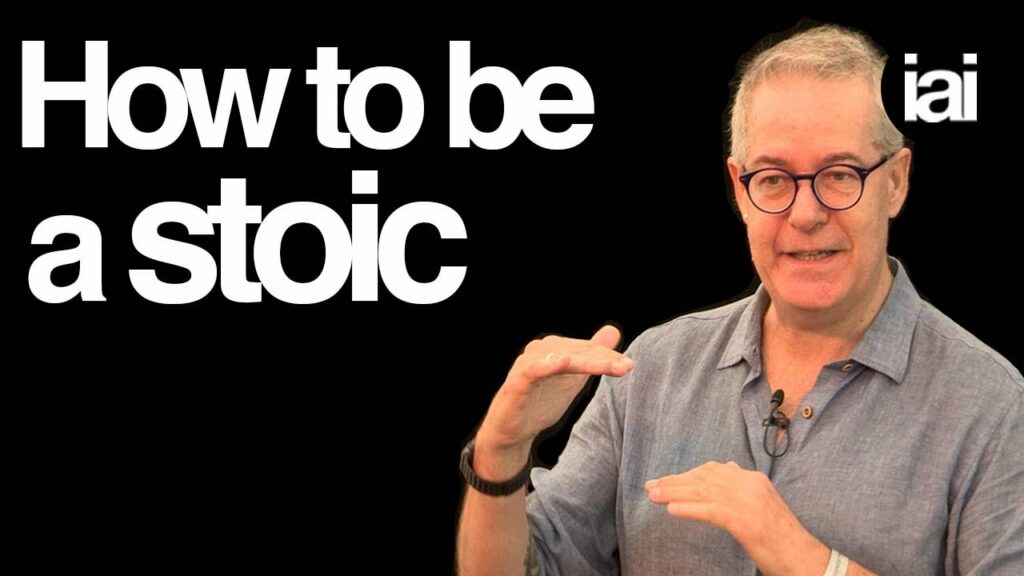How to Be a Stoic in Your Everyday Life: Philosophy Professor Massimo Pigliucci Explains

To a viewer on the internet, TED Talks and TEDx talks may seem more or less the same. That makes sense, since the main difference between them isn’t of format, but physical location: TED talks take place at official TED conferences, and TEDx talks at TED-licensed but independently-organized events. The latter are more numerous, and also more geographically varied. Take the talk above from TEDxAthens, the ideal place for speaker Massimo Pigliucci to deliver his opening historical sketch, which he begins by asking his audience to “imagine, if you will, that you’re walking down the streets of Athens 24 centuries ago, give or take.”
In such a setting, “you might meet this guy: Zeno of Citium.” A once-prosperous merchant stranded by a shipwreck, he’d wound up in the Greek metropolis, where he spent his days hanging around bookstores. One day “he read Xenophon’s Memorabilia, which is a book about Socrates, and he was so intrigued that he turned to the bookseller and said, ‘Where I can find me one of these people, one of these philosopher folks?’” Luckily for Zeno, the streets of Athens were crawling with philosophers at the time, and it was under their tutelage that he developed his own philosophical acumen to a level that prepared him to found his own school: Stoicism, so named because its members met in the stoa, where the markets set up.
The early Stoics were concerned with everyday life, and how it can be lived “according to nature”: the world’s nature, but also our own. Then, as now, a great many people suffered unnecessarily out of confusion as to where the world ended and they began. They had, in other words, no clear sense of what was under their control and what wasn’t, a condition that the core teachings of Stoicism are designed to rectify. “The idea is that you can do things, you can make decisions about your health, your reputation, et cetera, et cetera, but ultimately, you don’t control the outcome,” Pigliucci explains. In practice, this means that “we should try to walk through life by internalizing our goals — not worry about the outcomes, because those are outside our control, but worry about our intentions and our efforts, because those are very much under our control.”
“Worry” may not be quite the appropriate term. It connotes, in any case, a self-defeating habit that would hardly be condoned by history’s best-known proponents of Stoicism, like the first century Roman statesman and man of letters Seneca, the second-century Roman emperor Marcus Aurelius, and especially the Greek ex-slave Epictetus, whose life bridged those eras. Epictetus believed, as Pigliucci puts it, that “a great part of happiness lies in the serenity,” in “the idea that you always walk through life by knowing that you’ve done your best, and that nothing else could be done on top of that.” We can learn more about how, exactly, to do our best from the work these Stoics left behind, all of which is free online: Epictetus’ Enchiridion, Marcus Aurelius’ Meditations, the collection of Seneca’s writings previously featured here on Open Culture.
Of course, we could also read Pigliucci’s own book, How to Be A Stoic: Using Ancient Philosophy to Live a Modern Life, or even watch “Think Like a Stoic: Ancient Wisdom for Today’s World,” his series from The Great Courses (which is also available through Audible free to its members). Pigliucci is but one of the host of practitioners willing to introduce us to the principles of Stoicism, even these 24 centuries — give or take — after its invention. But whether on the streets of ancient Athens or in the digital labyrinths of the 21st century, the best teachers of this particular philosophy are the vicissitudes of life itself. Whether we can meet them with virtue and equanimity is up to us — and indeed, to put it Stoically, the only thing that’s ever been up to us.
Related content:
Three Huge Volumes of Stoic Writings by Seneca Now Free Online, Thanks to Tim Ferriss
350 Animated Videos That Will Teach You Philosophy, from Ancient to Post-Modern
Based in Seoul, Colin Marshall writes and broadcasts on cities, language, and culture. His projects include the Substack newsletter Books on Cities, the book The Stateless City: a Walk through 21st-Century Los Angeles and the video series The City in Cinema. Follow him on Twitter at @colinmarshall or on Facebook.


